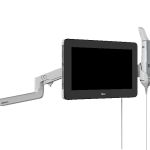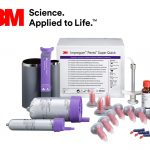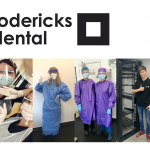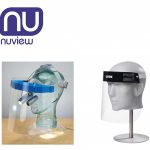As every dental practice owner knows, the delivery of quality care can only happen when there is an efficiently run business underneath.
Whether you are large or small, payroll is one of the essential processes for a smooth, successful practice. It isn’t just about people being paid on time, as there will be workplace pensions to deal with, and you may offer a package of incentives and benefits too. You are likely to have self-employed workers and perhaps individuals who are paid on a different schedule. Throw a curveball like furlough into the mix, and payroll can be as complicated as it is essential.
Changes to payroll
Payroll has changed a lot over the last decade. The phased introduction of Real Time Information (RTI) by HMRC began in 2012, to improve how employers submitted PAYE data. More companies are now required to auto-enrol staff into a pension than ever before –plenty of businesses across the UK have faced a penalty because they unknowingly failed to comply. Next up in the immediate future is Off Payroll Working legislation (IR35), due to come into effect in the 2021/22 tax year.
No business owner ever wants to make a payroll error and risk a penalty or upsetting a valued worker. But what could future payroll look like – is there anything you can do now, to get one step ahead?
 More Cloud-based working
More Cloud-based working
Thankfully, technology has also advanced over the past 10 years, making it easier for payroll to move with the times. Cloud-based working came into its own in 2020; when work travel was restricted, the ability to access data remotely meant that payroll could be processed without anyone needing to come into the building.
If you were reluctant to use Cloud-based software before, it has certainly proven how efficient and secure it is. Also, information can be accessed in real time and it is easier to add new people to your payroll – these technologies are flexible, adaptable and here to stay. Ultimately, the more people who use these systems, the more software developers will have to raise their game, meaning that in the future, choosing to work in the Cloud will be even more of a no-brainer.
Flexible pay?
There have been rumours that the payroll of the future might not be monthly or even weekly, but flexible, so businesses can pay people on demand. Might this work for your practice if your schedules are still subject to ongoing change? This could be something to look out for.
Key insights from your payroll data
Artificial intelligence, or AI, sounds very space-age but AI technology platforms can look at your payroll data and extract valuable insights that could inspire positive action. This is another example of how payroll and cutting-edge technology are a match made in heaven.
Employee engagement with payroll
Might we see a time where employees could update their payroll information, such as their personal details, via secure Cloud-based platforms? Maybe! Of course, there needs to be trust and collaboration between every worker and business owner but then this is essential for any thriving dental practice anyway…
When the pandemic started, we were all reminded how none of us can predict the future. So, is all this talk rather fanciful, when things that occur out of the blue, as well as ever-changing legislation, might complicate payroll further, leaving even the most advanced technology on the backfoot and having to adapt?
 This is reason number-one why so many dental practices are choosing to outsource their payroll. When you outsource, you will save yourself time and stress. You can focus on the million-and-one other tasks needed to keep a business growing and thriving in this current challenging climate, knowing that, whatever happens, people will be paid and you will be compliant with HMRC. Wagemate is a dedicated payroll provider that supports many dental practices and uses the latest technology to ensure an accurate, efficient and high-quality service.
This is reason number-one why so many dental practices are choosing to outsource their payroll. When you outsource, you will save yourself time and stress. You can focus on the million-and-one other tasks needed to keep a business growing and thriving in this current challenging climate, knowing that, whatever happens, people will be paid and you will be compliant with HMRC. Wagemate is a dedicated payroll provider that supports many dental practices and uses the latest technology to ensure an accurate, efficient and high-quality service.
When you think about payroll of the past, it all seems rather antiquated – now it’s a high-tech area, this has made it less complicated, surely? Not necessarily, as the functions of payroll have increased too. So much has changed in the last 10 years, so the next 10 could predict a very different future. Stay ahead by outsourcing your payroll, and you will be ready for anything.
To better manage your payroll, contact payroll specialists Wagemate today, tel: 03330 102102 or email info@wagemate.com
Author:
Daniel Hull
Director – Wagemate Limited
















 More Cloud-based working
More Cloud-based working  This is reason number-one why so many dental practices are choosing to outsource their payroll. When you outsource, you will save yourself time and stress. You can focus on the million-and-one other tasks needed to keep a business growing and thriving in this current challenging climate, knowing that, whatever happens, people will be paid and you will be compliant with HMRC. Wagemate is a dedicated payroll provider that supports many dental practices and uses the latest technology to ensure an accurate, efficient and high-quality service.
This is reason number-one why so many dental practices are choosing to outsource their payroll. When you outsource, you will save yourself time and stress. You can focus on the million-and-one other tasks needed to keep a business growing and thriving in this current challenging climate, knowing that, whatever happens, people will be paid and you will be compliant with HMRC. Wagemate is a dedicated payroll provider that supports many dental practices and uses the latest technology to ensure an accurate, efficient and high-quality service.

